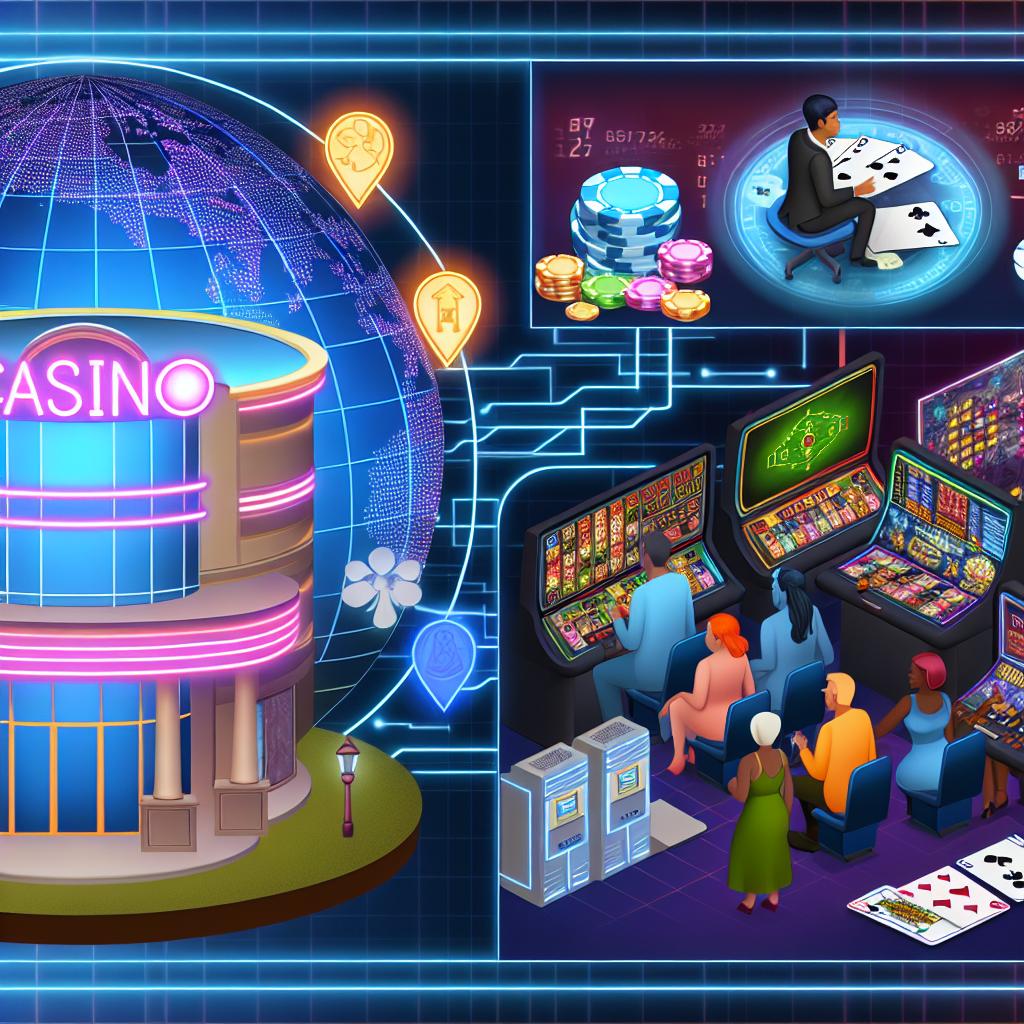
How do online casinos work?
Understanding Online Casinos
Online casinos are virtual platforms that provide gambling experiences over the internet, simulating the environment and games of traditional brick-and-mortar casinos. By leveraging advanced digital technologies, these casinos create engaging, interactive experiences for players from the comfort of their own homes.
The Basics of Online Casino Operation
At the core of online casinos are sophisticated software systems that carry out the operations of providing various gaming options. Generally, there are two main types of online casinos, each with its unique method of delivering games to users.
Web-based Casinos: These platforms offer games directly through web browsers, eliminating the need for players to download any additional software. Utilizing technologies such as Java and Flash, these casinos allow for instant play, providing a seamless gaming experience. This approach focuses on accessibility and speed, allowing quick access to a wide array of games without the hassle of extra downloads.
Download-based Casinos: On the other hand, this type requires players to download a software client onto their device. Once downloaded, this client handles all interactions with the casino’s service provider and does not require the use of a web browser. This method often results in faster gaming experiences and enhanced graphics, as the software is specifically designed to optimize performance and graphics processing on the user’s device.
Random Number Generators (RNG)
The fairness of online casino games heavily relies on Random Number Generators (RNGs). These are algorithms designed to ensure that outcomes are entirely random and unpredictable, mimicking the randomness found in traditional casino games. The RNG continually generates numbers every millisecond, regardless of whether a game is being played. This constant generation of numbers ensures that outcomes cannot be predicted, thus maintaining the integrity and fairness of the games.
Software Providers
Key players in the online casino industry include prominent software providers like Microgaming and NetEnt. These companies are pioneers in developing high-quality casino games, known for their stunning graphics, dynamic gameplay, and innovative features. By partnering with multiple online casinos, these providers help ensure a diverse range of games is available, contributing to the rich gaming libraries seen on these platforms. Their role is crucial in maintaining the standard of quality and reliability expected by players worldwide.
Game Offerings
The variety of games available at online casinos is extensive, catering to a wide range of preferences. Players can choose among numerous types of games that capture the essence of their physical counterparts.
Slot Games: These are digital renditions of the classic slot machines found in physical casinos, reimagined with vibrant graphics and engaging themes often inspired by popular movies, TV shows, and myths.
Table Games: Among the most popular offerings are digital versions of classic table games such as blackjack, roulette, and poker. These games come equipped with realistic graphics and animations, creating an experience that closely resembles playing at a physical venue.
Live Dealer Games: For those who crave the atmosphere of a real-world casino, live dealer games offer a compelling option. These are broadcast from professional studios and feature human dealers conducting the game. Players interact with the dealer and other participants through a live chat, providing a social and immersive experience.
Deposits and Withdrawals
Managing funds in online casinos is a straightforward process, designed with user convenience and security in mind. Typically, these platforms accept a range of payment methods to suit various user needs.
Credit and debit cards are frequently accepted, providing a common and straightforward payment option. E-wallets, such as PayPal and Skrill, offer an alternative that is often faster and provides an extra layer of security, as users do not need to directly share their banking information with the casino. Additionally, many casinos have started accepting cryptocurrencies, allowing users to transact using Bitcoin and other digital currencies for enhanced privacy and lower transaction fees.
Privacy and Security
Protecting player information is a top priority for online casinos. These platforms employ Secure Socket Layer (SSL) encryption to safeguard both personal and financial data from potential breaches. This encryption protocol ensures that any data exchanged between the user and the casino remains confidential and secure.
Furthermore, reputable online casinos adhere to rigorous licensing and regulatory frameworks established by governmental and independent gaming authorities. These regulations ensure that the casinos operate transparently, maintain fair practices, and are accountable for their operations.
Regulation and Licensing
Regulatory oversight is crucial in the online casino industry. Online casinos must comply with the rules and standards set by licensing bodies, which vary depending on the geographic location. For instance, the UK Gambling Commission is one of the most respected regulatory authorities, known for enforcing strict guidelines to ensure fair treatment of players and the responsible operation of online casinos.
These regulatory bodies perform regular audits and assessments to ensure compliance with their standards, covering aspects such as game fairness, payout percentages, and security protocols.
Responsible Gaming
Responsible gaming is a critical aspect of modern online casinos, with many platforms actively promoting it through various means. Self-exclusion programs allow players to take a break from gambling by temporarily or permanently blocking their own access to the casino. Deposit limits can be set by players to control how much money they can deposit over a given period, helping prevent excessive spending.
Alongside these features, educational content is often available on these platforms to inform players about the risks of problem gambling. Many online casinos also affiliate with organizations such as GamCare and Responsible Gambling Council to provide additional support and resources for those in need.
Conclusion
The landscape of online casinos is continually evolving, propelled by technological advancements that enhance the user experience. Understanding how these platforms work is essential for anyone looking to engage in online gambling. By learning about the operations, security measures, game offerings, and regulatory frameworks, players can make informed decisions, ensuring a safe and enjoyable gaming experience in the virtual casino world.








